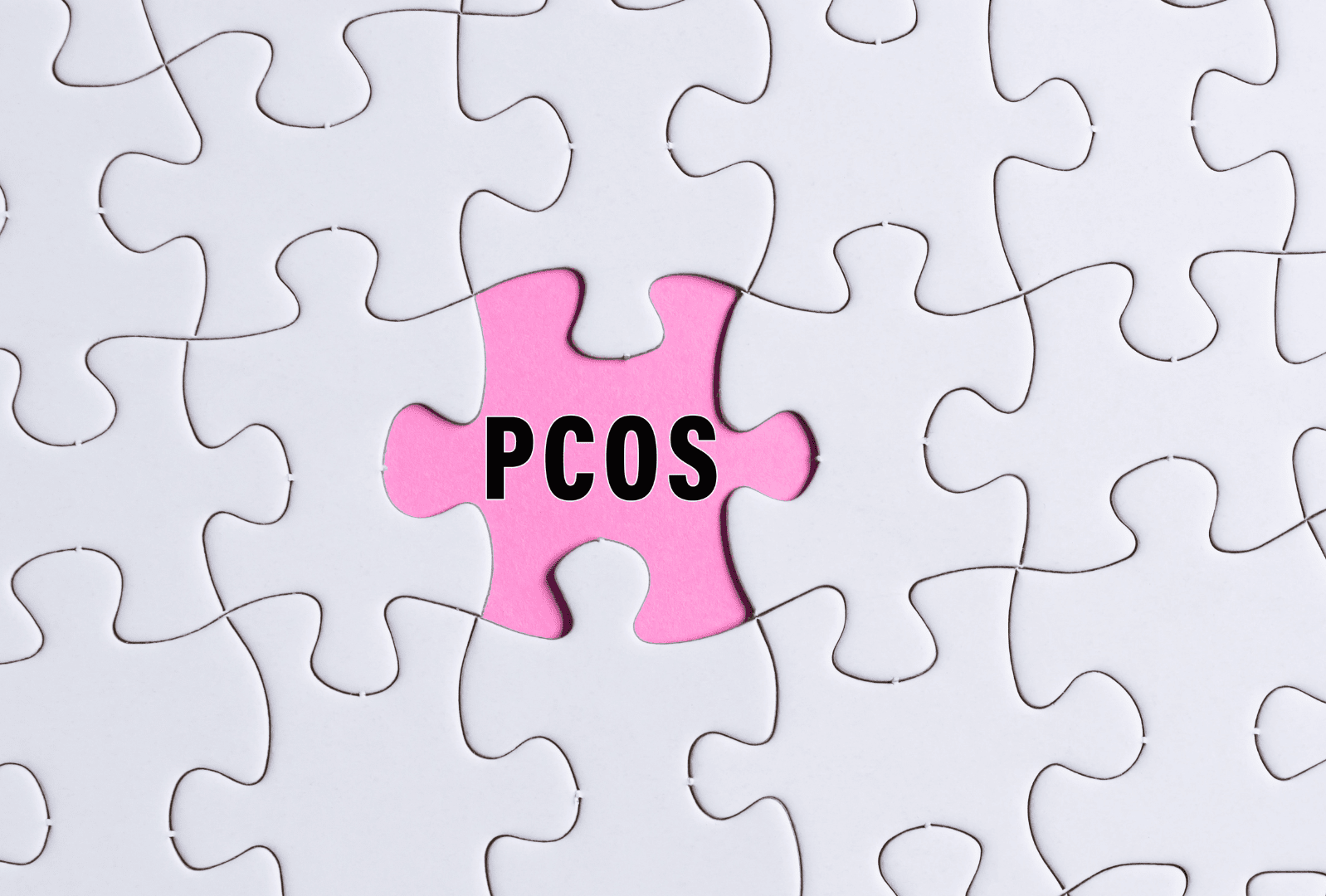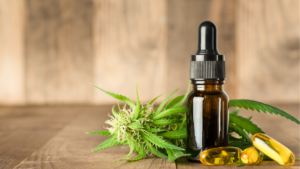What is Polycystic Ovarian Syndrome?
The U.S Department of Health and Human Services (HHS) defines Polycystic Ovarian Syndrome (PCOS) as a lifelong hormonal and metabolic imbalance. This condition affects approximately 5-15% of people with ovaries, after the onset of puberty and persisting beyond menopause (Walker et al., 2019). Most people diagnosed with PCOS experience menstrual cycle irregularities, abnormally high levels of androgen hormones and ovarian cysts. The risk of developing PCOS is higher for people that are obese, and for those with a family history of the PCOS (HHS, 2017).
People often go undiagnosed until they experience infertility. Most symptoms are complex issues that need a variety of different treatments. People with the ability to become pregnant that desire to do so, should disclose that information to their health care provider in order to develop the most suitable treatment plan, and avoid anything that may contribute to infertility or cause harm. PCOS presents with a multitude of signs and symptoms, some of these may include (Walker et al., 2019):
- Ovarian cysts
- Infertility
○ PCOS is the leading cause of infertility
○ It is still possible to become pregnant with PCOS
- Metabolism syndromes
- Abnormally heavy periods
- Amenorrhea (no menstrual periods)
- Oligomenorrhea (infrequent periods)
- Anovulation (absence of ovulation, bleeding may still occur)
- Obesity, weight gain, and/or difficulty losing weight
- Hirsutism (excess hair typically on the face, chest, belly, and upper thighs)
- Pelvic pain, ranging from tolerable to debilitating
- Severe and persistent acne
- Excessively oily skin
- Inflammation
Furthermore, the Centers for Disease Control (CDC) and HHS claim that people who have PCOS are at an increased risk for:
- Stroke
- Miscarriage
- Insomnia
- Gestational and Type 2 Diabetes
- Cardiovascular Disease
- Obstructive Sleep Apnea
- Endometrial hyperplasia
- Endometrial cancer
- Thinned scalp hair and baldness
- Mood disorders including depression and anxiety
The Endocannabinoid System (ECS) and Hormones in PCOS
Research suggests that the endocannabinoid system of someone with PCOS may be dysfunctional (DiBlasio, 2013). The endocannabinoid system regulates homeostasis and is involved in regulating appetite, food intake, and glucose metabolism. The ECS can affect ovarian function by modulation of pathways involved in homeostasis and metabolic regulation (Juan et al., 2015).
Obesity is associated with menstrual irregularities, including oligomenorrhea and anovulation, and infertility (Juan et al., 2015). Many people with PCOS also suffer from insulin resistance, causing increased androgen production, increased appetite, and acanthosis nigricans, a condition that presents thickened and darkened patches of skin in certain areas especially in any folds or creases (HHS, 2017). The ECS may influence insulin resistance and obesity (Walker et al., 2019). Limited data from research using animal models suggests a relationship exists between obesity and the dysregulation of the main endocannabinoids produced by the body, N-arachidonoylethanolamine (AEA) and 2-Arachidonoylglycerol (2-AG) (Maccarrone, 2005).
Many of the most common PCOS symptoms are due to increased androgen and low estrogen hormone levels. An excess of androgens may lead to cyst formation in ovarian follicles, increased hair growth and acne on the face and body, and may even interfere with brain signals that initiate ovulation. It should be noted that not every person with PCOS develops ovarian cysts (Walker et al., 2019).
Data from a PCOS and ECS centered study using non obese participants suggests the menstrual cycle’s proliferative and secretory phases show a significant reduction of fatty acid amide hydrolase (FAAH) levels in the endometrium of infertile participants with PCOS, compared to infertile participants without PCOS (Cui et al., 2016). FAAH is an integral enzyme involved in metabolism of endocannabinoids AEA and 2-AG. The absence of these catabolic reactions involved in degradation, suggest that high levels of AEA may be indicative of PCOS (Cui et al., 2016). Lack of endocannabinoid degradation causes high endocannabinoid levels and insulin resistance, often causing hepatic stress and injury (Luschnig, 2019). A study using non obese participants with PCOS found that a combined treatment of antiandrogens, antiestrogens and an oral hypoglycemic, significantly reduces high AEA levels (Cui et al., 2016).
The cause of PCOS is unknown but science suggests that both genetic and environmental factors contribute to the development of the disease. Dysregulation of the ECS is also involved (Luschnig, 2019). PCOS is incurable but some options for treatment may include cannabinoid therapy by balancing the ECS to provide relief from pain and inflammation. Additionally, lifestyle changes including weight loss, oral contraceptives, insulin sensitizing agents, antiandrogens, hair removal and acne treatment may be incorporated.
As always, we recommend speaking with a licensed medical professional before starting a new cannabis regime. To learn more about the potential benefits of cannabinoid therapy, please reach out to a member of the Realm of Caring team!
By: Jazmin Oliver / Cannabis Science Consultants
References
- U.S Department of Health and Human Services (HHS). Polycystic Ovary Syndrome (PCOS). Jan 2017. https://www.nichd.nih.gov/health/topics/pcos.
- Centers for Disease Control. PCOS (Polycystic Ovary Syndrome) and Diabetes. March 2020. PCOS CDC.
- Cui, N. et al. Decreased Expression of Fatty Acid Amide Hydrolase in Women with Polycystic Ovary Syndrome. Gynecological Endocrinology. Sept 2016. Doi: 10.1080/09513590.2016.1269742.
- Cui, N. et al. Restored Plasma Anandamide and Endometrial Expression of Fatty Acid Amide Hydrolase in Women With Polycystic Ovary Syndrome by the Combination Use of Diane-35 and Metformin. Clinical Therapeutics. April 2017. Doi: 10.1016/j.clinthera.2017.02.007.
- DiBlasio, A. et al. The Endocannabinoid Pathway and the Female Reproductive Organs. Journal of Molecular Endocrinology. Feb 2013. doi: 10.1530/JME-12-0182.
- Duma, M. Is Cannabis a Natural PCOS Treatment? We Asked an Expert. Sept 2018. Leafly.
- Juan, C. et al. Endocannabinoid System Activation may be Associated with Insulin Resistance in Women with Polycystic Ovary Syndrome. Fertility and Sterility. July 2015. doi: 10.1016/j.fertnstert.2015.03.027.
- Luschnig, P. et al. Cannabinoids in Gynecological Diseases. Journal of Medical Cannabis and Cannabinoids. May 2019. doi: 10.1159/000499164.
- Maccarrone, M. et al. Up-regulation of the Endocannabinoid System in the Uterus of Leptin Knockout (ob/ob) Mice and Implications for Fertility. Molecular Human Reproduction. January 2005. doi: 10.1093/molehr/gah130
- Walker, O. et al. The Role of the Endocannabinoid System in Female Reproductive Tissues. Journal of Ovarian Research. Jan 2019. doi: 10.1186/s13048-018-0478-9.





